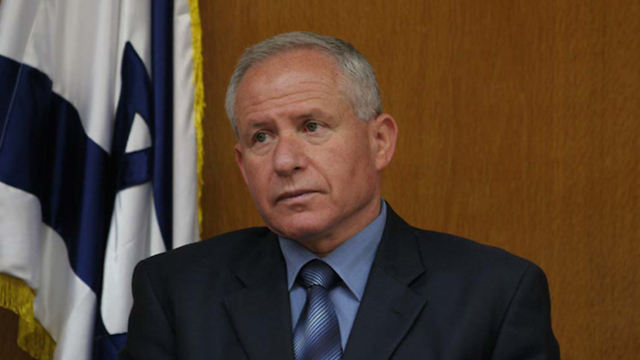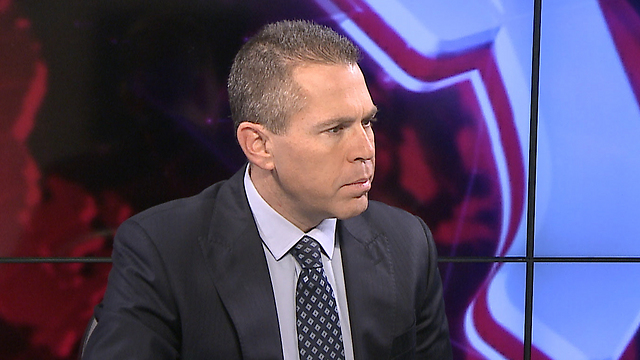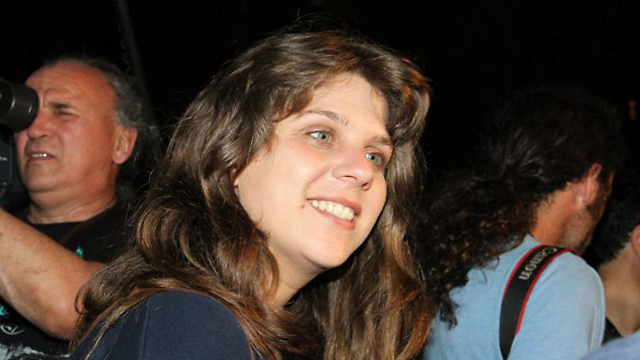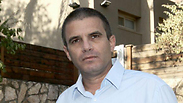
Nominate and evacuate
Analysis: Gal Hirsch's appointment as police commissioner was a double mistake, Daphni Leef still dreams of the future, and the Christian schools' protest is more than a simplistic set of complaints.
He had connections to a questionable contractor from Nazareth, and those led to suspicions of corruption. The attorney general at the time, Meni Mazuz, approved the appointment, and the Supreme Court gave its “thumbs up,” but these were accompanied by a chorus of stinging comments. Ganot made quite a few enemies during his career - inside the police force and outside of it. They weren’t going to let him go now.
Dichter came into government from the Shin-Bet. He was a total rookie in terms of public sector battles. Assuming the Ganot appointment didn’t go through, I asked him, do you have a plan B? He smiled his charming, all-knowing smile at me and said “of course I have a plan B.”
But he did not, and if he did it vanished. A few weeks later, when Ganot gave the position up, Dichter ended up in a pretty severe bind. He ended up having to appoint Dudi Cohen, who owed him nothing and gave him a hard time for the rest of his tenure.
Appointments are a complex issue. The appointer has to consider not just the appointee’s skills, their fitness for the position, their relationship to the minister in charge and to the prime minister, their trouble-making potential and their temper, but also their past baggage and the enemies who might be waiting around the corner, as well as the time it’ll take to get the appointment approved.
In addition, the appointer needs to evaluate all of these traits in the competition. I once asked Minister of Defense Ezer Weizman why he decided to appoint Rafael Eitan to head the IDF. “You don’t know Herzl Shafir,” he answered quickly. Shafir, may he live long and well, was Eitan’s competitor.
The Facebook government
Gilad Erdan's choice of Gal Hirsch was a double mistake. Hirsch had a trail of foes from his IDF days, including former Major-Generals and bereaved parents who lost their children in the Second Lebanon War. His post-IDF career, as the CEO and owner of a company that consulted on and marketed security services, naturally sparks questions and suspicions, which take time to sort through. That extra time made the appointment irrelevant. That’s how former judge Jacob Turkel foiled Ganot’s appointment in 2007, and that’s how he foiled Hirsch’s appointment this week.In 2007 Dichter could take comfort in the fact that his appointee was fit for the position. Hirsch was a mistake on that front as well. He wasn’t a good match, not as far as his professional background or temperament were concerned, and not in terms of the rank he reached in the IDF (Brigadier-General). If Erdan had asked the IDF chief what he thought of appointing Hirsch to the commissioner position he almost certainly would have got a negative response. But Erdan didn’t ask.
Gilad Erdan is an articulate, handsome, ambitious politician with a clean reputation. Up until the appointment saga, he was considered one of the prime candidates to inherit Netanyahu, if and when. The experience people like him accumulate in politics leads them on two different, opposed paths. On one hand, they acquire wisdom, sophistication, and experience. On the other, they become cynical, bitter, and full of self-pity. Erdan’s response to his appointee’s fall showed us his advancement in the cynical, bitter, self-pitying path. His advancement on the wisdom path is a bit shorter.
A government minister reminded me this week of the fact that, up until this week, the government didn’t discuss what’s called “stone-throwing terrorism”. The whole country lived through that violent wave, except for government members. They stay in the confines of their Facebook pages. This is a Facebook government: Each minister strikes the Palestinians with their words on the social network, suggesting bill ideas that never become law, making decisions about wars of which they have no knowledge. All follow the model shown to them by Netanyahu.
The question of Netanyahu’s motives regarding the Hirsch appointment fiasco is open to discussion. It’s possible he understood immediately that the appointment was destined to fail, but enjoyed watching Erdan squirm. It’s possible that he forgot his failures in previous appointment cases and pushed Erdan forward. And maybe it’s all just a great example of Israeli democracy, which knows how to temper its leaders’ impulses.
Netanyahu didn’t want Benny Gantz as IDF Chief of General Staff, and got him. He didn’t want Karnit Flug as Governor of the Central Bank of Israel, and got her. He fought with all his might against Reuven Rivlin’s election as Israel’s president, and got him (his decision to boycott President Rivlin dissolved within a month. He requested a meeting at the presidential residence on Friday).
It’s not just about appointments. He did everything he could so that Barack Obama wouldn’t get elected for a second term, and got him. He divided the Jewish community in the US trying to foil the Iran deal, and got it. He struggled to get the natural gas plan through government and Knesset approval, and hasn’t gotten it (yet). It’s a pretty heavy load of failures for a man who recently said of himself that “I get everything I want.”
Back to Erdan. If he wants to recover his public image, he has to quickly appoint a police commissioner. In practice, the police force has been operating without a commissioner for a year. That’s much too long. When Erdan was considering whether to enter the government, Netanyahu gave him more authority.
Part of that extra authority is combating the boycotts of Israel. Gal Hirsch announced recently that after the termination of his candidacy for the commissioner position, he’s willing to serve Israel in other capacities. Here’s one: Fighting the boycotts. That task fits Hirsch like a glove. “I plan to affect the strengthening of the state of Israel,” he said yesterday. Very well then.
She’s a dreamer
On Sunday night, Daphni Leef and Yael Deckelbaum’s caravans arrived at the Karmiel city square. Leef was the most prominent of the summer 2011 social protesters. Deckelbaum is a beloved singer. The two went on a 45-day journey of Israeli towns, from Metula (a northern town bordering Lebanon), all the way down south. The journey’s slogan was “finding the way home.”
When I got to Karmiel, at 8:15pm, the city square was occupied by 16 men and women of different ages. As the night went on the number grew to 30, including four children and three dogs, not much when considering the hundreds of thousands who gathered at the state square (Kikar Hamedina) in Tel Aviv during the social protest’s goodbye party. I don’t mention these numbers in order to mock. On the contrary. Daphni Leef is a very interesting person, with a special perspective and charisma.
The social protest movement gave many Israelis one summer of joy, followed by a years-long hangover. There are those who blame the protest movement, and Leef personally, for everything: For Netanyahu, Kahlon, Lapid, for the alienation between the center and periphery, for the alienation between Ashkenazi and Mizrahi people.
She told me that after that summer, she was devastated, as was her bank account, partially due to the things people said about her. This journey is a sort of rehabilitation. Maybe she’ll inspire more and more people as she goes. Maybe not. Either way, she’ll journey on.
“My name is Daphni Leef,” she said into the microphone, “you remember me from the social protests – but that’s not the story.”
Leef places the two caravans in a square at the center of each town. Deckelbaum sings, and Leef asks the people what their dreams are, how they want the country to look in 50 years. The answers are innocent, touching. In Karmiel they wanted a country where Arabs and Jews live together as one people. Karmiel is a mixed town, located in the middle of a concentrated Arab population. In Kiryat Shmona and Tiberias the people wanted some more social justice. Some of the people said they don’t believe that there would still be a Jewish state here in 50 years.
“The social protest movement,” Leef said, “wasn’t about money. It was about the high cost of living, because the cost of living prevents people from achieving their dreams. Leef is still a dreamer. I’m envious of her.
At 9pm, a women-only selihot (“forgivings”) night opened at city hall. About 100 women filled the hall. They wore coifs and long dresses. They paid money at the entrance, got coffee and a pastry, and went in. None of them stalled even for a moment to exchange dreams with the bunch of people outside.
Not about Jesus
One-hundred-twenty thousand people, no more – that’s the size of the Christian-Arab sector of the Israeli population. A minority within a minority. The Jews know how that feels. Sometimes that feeling leads to nationalism, sometimes to seclusion. It almost always leads to excellence. As the world’s Jews knew how to use education as a ladder, so do the Christian Arabs in Israel. Their 47 schools are the best and most advanced in the country.
It’s not just me saying that; Naftali Bennett’s Ministry of Education says the same. Nearly 95 percent of students get their high school diploma - a dreamlike rate. More than any other sector of the population, they are realizing Bennett’s vision of a people comprised of advanced mathematics-educated high-schoolers. The national-religious Jewish schools are the farthest away from that vision.
The Christian schools are special in another way: They educate pupils through a single system, from the age of three or four to 18. There are no crisis-inducing transitions between elementary and middle school, or from middle to high. There’s one sustained package. Among the 33,000 students in these institutions are many Muslims, and more than a few Jews.
Awni Bathish, principal of the catholic school in Nazareth, told me this week that over a third of the students at the catholic school system’s Jaffa branch are Jewish. For instance, one of Netanyahu’s former assistants, a pretty famous Jewish man, chose to send his children there of all places.
I asked Bathish to mention some names of graduates whose career flourished, in Israel and abroad. The list is long: It includes doctors, engineers, college professors, Knesset members. The first person he mentioned was Johny Srouji – a vice president of Apple, the highest-ranking Israeli in the international high-tech world, and a graduate of the catholic school in Haifa. Srouji founded Apple’s development center in Israel, but lives with his family in the US.
There’s something symbolic about that combination: Striving for excellence guarantees the graduates’ success; the hardships along the way, as people of a minority within a minority, push them to succeed abroad. The brain drain is Israel’s failure.
The Christian schools have been striking since the start of the school year on September 1, due to their claims of unfair budget allocations by the Ministry of Education. It’s easy to mentally add this protest to the pile of anti-Arab discrimination claims in Israel, or, if you will, the more specific pile of anti-Christian-Arab discrimination claims. It’s easy to imagine nationalistic influences that led to this discrimination: The Jewish Home (the right-wing party led by Minister of Education Naftali Bennett) taking from the non-Jewish home. Those who aren’t satisfied with the easy answers will find that, more than it is religious or nationalistic, this case is political. Jesus isn’t the star of this story.

The Ministry of Education has always strived toward a policy of separating proper public-sector schools from other types, specifically those called “acknowledged, but unofficial.” That different brand includes independent schools, a National Torah Judaism (the prominent Ashkenazi-haredi political party) school chain, and Ma'ayan Hachinuch Hatorani, a Shas (the prominent Sephardic-haredi political party) school chain. It also includes the Hebrew Reali schools in Haifa and Jerusalem - two secular schools, and a long line of religious schools that have detached themselves from the public-religious school chain.
The tendency of education ministers throughout the ages – from the Likud, Labor, Meretz, Yesh Atid parties – has been to give public schools full funding, and partially fund the others. That’s to be encouraged. If parents want to send their kids to private schools, ones that more closely resemble their worldview, it’s only natural that they pay for it themselves.
And then Aryeh Deri’s star began to twinkle in the night sky that is Israeli politics. In Deri’s first run, before his trial and imprisonment, he managed to pass legislation giving the two haredi school chains full government funding. The discrimination in favor of the haredi people messed with the education system’s internal logic. Those who refuse to teach core school subjects such as English and math, who refuse to prepare pupils for a life in the job market, who educate children to feel contempt toward the state and separate themselves from it, are funded at 100 percent, while those who give children a decent education are funded at just a 75 percent rate (and education programs that start at pre-school ages get even less). This isn’t a struggle of catholics vs. haredim: It’s catholics and the Hebrew Reali vs. haredim.
There’s a twist to this plot. The previous government, in which Yair Lapid was finance minister and his fellow Yesh Atid party member Shai Piron was education minister, it was decided that 7.5 percent of the subsidies the government gives unofficial, but recognized schools would be cut. Lapid needed the money, and wanted the haredim to be the first people he took it away from. The haredi schools were damaged by this move, but survived. Those who were nearly bankrupted by it were the catholics. One of the first demands the haredi parties presented during the negotiations that preceded the current government’s formation involved cancelling that 7.5 percent cut. They got their wish, of course, and the catholics benefitted from it too.
Bathish and his colleagues aren’t satisfied with that, and it’s not too hard to understand them. They presented current Finance Minister Moshe Kahlon with their grievances. Kahlon, they say, promised them NIS 50 million in the form of a one-time grant to the Christian people, to compensate for years of neglect and as a future incentive. That’s what the finance minister’s willing to give, the school principals told themselves, now let’s see what the education minister has to offer.
Naftali Bennett, who saw the negotiations as an opportunity to show generosity and leadership, sensitivity and decisiveness, was furious at Kahlon. Left without much choice, he told his ministry’s clerks to find some way of appeasing the striking principals. He couldn’t fund them at 100 percent: That would cost NIS 200 million a year, and would cause Jewish unofficial schools to demand the same treatment, which would cost twice that sum. Cutting funding for the haredi schools wasn’t going to happen. Not in this government. When I asked Awni Bathish what the difference between his group and the haredim was, he said, “They have Knesset representatives in the government, we don’t.” And that’s (almost) the whole story right there.
A final word
The Ministry of Justice, the State Comptroller’s Office, and thePrime Minister’s Office have been working on a document which clarifies and regulates the conflict of interest between Minister of Communications Benjamin Netanyahu and the media bodies he is responsible for regulating, for over four months now. They try and try, but have a hard time reaching an agreed-upon final version.
This titanic struggle has been occasionally mentioned here. The Justice Ministry’s draft has twice passed a reading by the Comptroller’s Office, including by the comptroller himself, was given the attorney general’s approval, and is now subject to “final deliberations” by the Prime Minister’s Office. This subject is highly charged and very sensitive. The challenge is reaching a document version that will allow Netanyahu to continue being communications minister without harming the financial prospects of his attorneys, whose main area of expertise is media litigation. Netanyahu’s answer is expected to arrive after the High Holy Day period.
The good years
During each anniversary of the Yom Kippur war, I think of the six years that preceded it – the good years. The financial system was doing well: The Six Day War marked an end to years of recession. The War of Attrition was creating new economic opportunities, blowing up the defense budget and enriching contractors. The expanses of the Sinai region and the Golan Heights were opened to Israelis: Beautiful and empty. Prime Minister Golda Meir and Defense Minister Moshe Dayan were riding the victorious wave. Meir wasn’t afraid to rebuke European leaders or to confront American ones. It was good living here – almost as good as it is today.
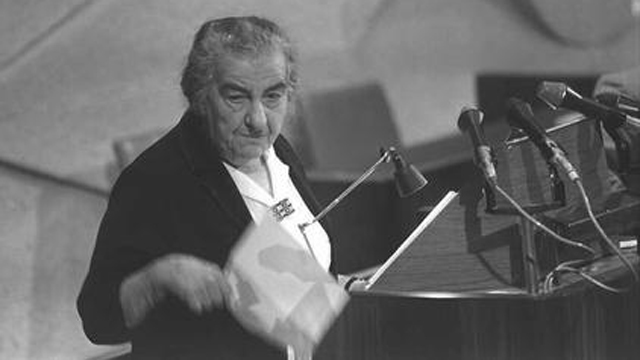
One person warned of the coming disaster: His name was Aryeh (Lova) Eliav. On the eve of the war, he wrote a short story called “the seagull”, in which a ship captain and his mates were drunk on their wine of glory, stunned by their grandeur, and sure of themselves and their status. The navigator on that ship couldn’t see past it’s bow. They were going to crash on the rocks. In the story, a lone seagull, flying above, could see what was about to happen. Eliav urged the country’s captains to sober up, raise their sails, change direction, and let the wind carry Israel to safety.
Golda and Netanyahu are fundamentally different people. If there’s any resemblance, it manifests in two small ways: The fear of any change to the status quo, and the sin of pride. Those two similarities led Golda to that disastrous October war. Where they’ll lead Netanyahu, I don’t know. After the Yom Kippur War was over, Eliav, that wonderful man, went from town to town, meeting to meeting, and presented people with his seagull proverb. They kept their ears shut: No one wanted to hear how foolish, ignorantly euphoric, and arrogant they were. They didn’t want to hear it before disaster struck, and didn’t want to hear it after. There’s a lesson in that as well.










